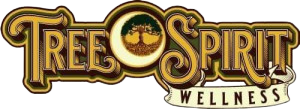It's crucial for resellers to stay on top of the most recent advancements in alternative psychoactive cannabinoids as the Hemp business continues to flourish. Understanding the differences between these compounds can help resellers serve a wide range of customers because they each offer distinctive benefits and experiences to consumers. Alternative cannabinoids including THC-P, HXC, THCV, THCH, THJD, and Delta 10 will be discussed in this blog. We'll examine their history, potential applications, and possible consumer reactions, giving resellers important information to help them choose the right products.
Tetrahydrocannabiphorol, or THC-P:
Tetrahydrocannabiphorol, also known as THC-P, is a relatively recent and uncommon cannabinoid that has drawn attention for its strength. THC-P, derived from the cannabis plant, is chemically related to THC (tetrahydrocannabinol). It is said to be more powerful than conventional THC, though. Users can notice a psychoactive affect that is stronger and lasts longer. Customers looking for a more intense THC experience or investigating novel and strong cannabis compositions can purchase THC-P goods from resellers.
Hexahydrocannabinol-C, or HXC
Another less well-known cannabinoid is HXC, or hexahydrocannabinol-C. Although its molecular makeup differs slightly from THC's, it shares many of the same structural characteristics. HXC is thought to have psychoactive qualities, albeit they differ from THC in terms of their effects. Although HXC research is still in its early phases, dealers can provide HXC goods to clients looking for new experiences and the potential advantages of this special cannabinoid.
Tetrahydrocannabivarin (THCV):
Tetrahydrocannabivarin, sometimes known as THCV, is a naturally occurring cannabinoid with different effects and possible advantages than THC. THCV is known to have a lower psychoactive effect than THC. According to certain research, THCV may aid in appetite suppression, making it potentially tempting to people searching for assistance with weight management. THCV might also be useful as an anticonvulsant and neuroprotective substance. For consumers looking for a distinctive cannabinoid experience, resellers can promote products with THCV as a possible THC or CBD substitute.
Tetrahydrocannabihexol, or THCH
Tetrahydrocannabihexol, sometimes known as THCH, is a cannabinoid produced from THC. Although its molecules are similar, it has different effects. Compared to THC, THCH is thought to have a less potent psychoactive effect. It might provide a more well-rounded experience, allowing for relaxation without going beyond with drowsiness or impairment. Customers looking for a mild and well-rounded marijuana experience may find THCH products to be a good middle-ground choice, according to resellers.
Tetrahydrocannabidipyran, or THJD
Tetrahydrocannabidipyran, also known as THJD, is a less popular cannabinoid that stands out due to its chemical makeup. Although there is little research on THJD, it is thought to have psychedelic qualities. Both mental clarity and relaxation may be felt by users. Customers interested in learning more about the possible effects of this special cannabinoid can be offered THJD goods by resellers as an exciting alternative.
Delta 10:
A recently identified cannabinoid called delta 10 is growing in popularity on the market. It comes from hemp and provides a different kind of psychoactive high than Delta 9 THC. The elevating and energizing properties of delta 10 are well recognized; they are sometimes referred to as a clear-headed high. Customers looking for an alternative may be introduced to Delta 10 products via resellers.

